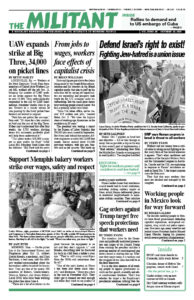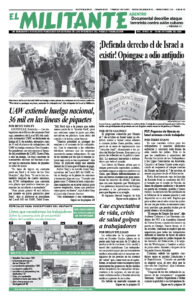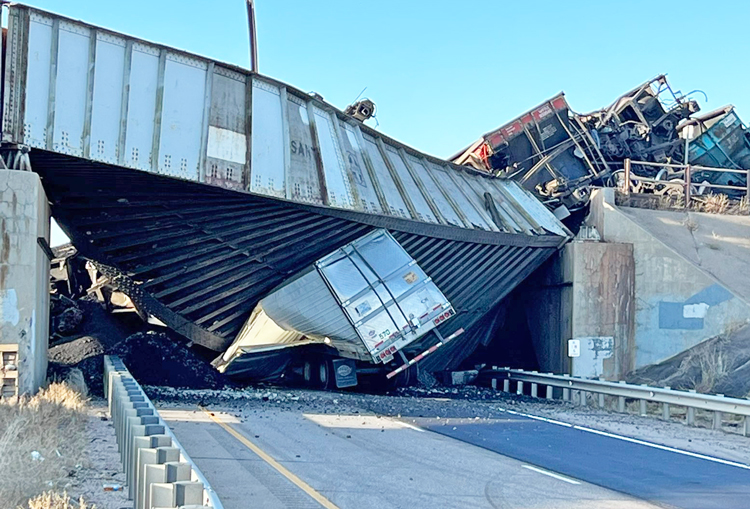On Oct. 15, 30 cars on a loaded Burlington Northern coal train passing near Pueblo, Colorado, derailed and brought a bridge crashing down onto Interstate Highway 25. It crushed a semitruck, killing the driver. This was the 177th derailment reported on the BNSF so far this year.
Former National Transportation Safety Board accident investigator Russell Quimby said the most likely cause of the bridge collapse was that the derailed cars slammed into the side of the bridge, causing it to fall. Nine miles of Interstate I-25 — the main north-south route in Colorado — had to be shut down.
The name of the game since has been passing the buck. The rail bosses say the state owns the 65-year-old bridge. The Colorado Transportation Department says BNSF was responsible for inspecting it.
A week earlier eight Union Pacific rail cars derailed in downtown Colorado Springs, spilling military vehicles and equipment. “All of a sudden we just heard ‘bang, bang, bang,’” eyewitness Steven Watkins told KKTV. “The cars were just spinning everywhere.”
The most devastating rail disaster this year was the Feb. 3 Norfolk Southern derailment in East Palestine, Ohio, dumping 50 cars on the ground, including 11 carrying hazardous chemicals, five of which were loaded with toxic vinyl chloride. Company and government officials decided to drain the vinyl chloride on the ground and set it on fire, spreading the toxic chemical throughout the region, with long-term effects.
Rail workers need to use their unions to set up committees of themselves, as well as area workers, farmers and small-business people to force open the business secrets and profit gouging of the rail bosses. The rail unions need to fight for larger train crew size, shorter trains and to take control over and enforce safe working conditions.


